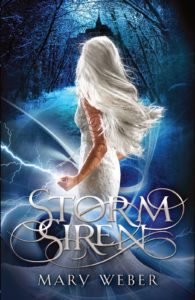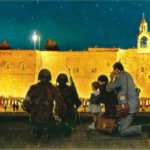Use What You Know
 Some discussion has swirled around recent speculative series such as The Hunger Games and Divergent as well as Christian speculative books such as Storm Siren by Mary Weber, concerning world-building. Some readers think the fantasy world is well defined and detailed. Others think the world-building is sketchy at best. So which is it?
Some discussion has swirled around recent speculative series such as The Hunger Games and Divergent as well as Christian speculative books such as Storm Siren by Mary Weber, concerning world-building. Some readers think the fantasy world is well defined and detailed. Others think the world-building is sketchy at best. So which is it?
I suggest it’s both. Like so much else about fiction, immersion into a fantasy world is as much a result of the reader’s imagination as it is the writer’s execution. Readers, therefore, who, for what ever reason, visualize a setting in detail, will declare that a story’s world-building is outstanding.
In truth, an objective reviewer who might compare, say, The Hunger Games to Harry Potter will show the number of ways the latter creates a more complete world than the former. Nevertheless, the reader caught up in the story will see the world she has imagined, filling in details from what she knows from her own experiences.
In my first critique group, an online group of people scattered around the U.S., I submitted a scene I wrote based on a place I’d visited in Colorado. But one of our members who lived near the Appalachian mountains said she could envision a place that was right near her home.
 In short, I wrote what I knew, and she, as the reader, imagined what she knew. As a result, she felt the world was detailed and well-constructed.
In short, I wrote what I knew, and she, as the reader, imagined what she knew. As a result, she felt the world was detailed and well-constructed.
One thing I’ve discovered when creating my fantasy world: a mash -up is often the way to make something new. So when I wrote about this place inspired by Colorado, I also threw in something very typically Californian since I am also familiar with the natural world where I live.
Here’s a part of that scene:
On they hiked, but now Jim worked extra hard to keep his eyes on the winding trail. At last, following the well-worn dirt path through high grass, they spilled into a flourishing glen. Soon the sedge gave way to a stand of flowering trees covered with magenta blossoms. Jim tipped his head back to take in the full effect. A sweet scent similar to lilac floated through the air, and he breathed deeply.
California? No, not really. Colorado? Not there either. The mash-up mixed with a bit of creative license, and the world becomes a new place—one that readers may imagine in a way that’s different from the one I saw as I wrote. But as long as the world immerses readers in the story, it has done its job.
[Of necessity this post is brief because of certain technological issues on my end.]









































I agree with this 100%. While we do need smooth writing to get us where we’re going in a story, the reader has to be on board as well. My sister-in-law and I can read the same book (and often do), but have very different reactions to it. The difference is in how we each perceive the book based on our own life experiences and imaginations!
And if that’s true of sisters, think how much more so for people who live in different states or countries, who have a different philosophical view on life, who were raised in a radically different environment. We writers may not like it, but readers do bring themselves as a filter to whatever they read.
Becky
I like your description of the mountain trail. It’s easy to overlook the fact that stories are inherently interactive, and it’s the dance between the reader’s imagination and the writer’s skill that enables a story to reach its full potential and become something more wonderful and profound than words artfully arranged on a page. Too much detail can hobble the imagination as effectively as too little.
“Of necessity this post is brief because of certain technological issues on my end.”
That’s okay–our imaginations will fill in the rest. 🙂
“Inherently interactive.” Love that turn of phrase, Fred! Your entire comment is so artful! Might you be a writer? 😉
Thanks for your input.
Becky